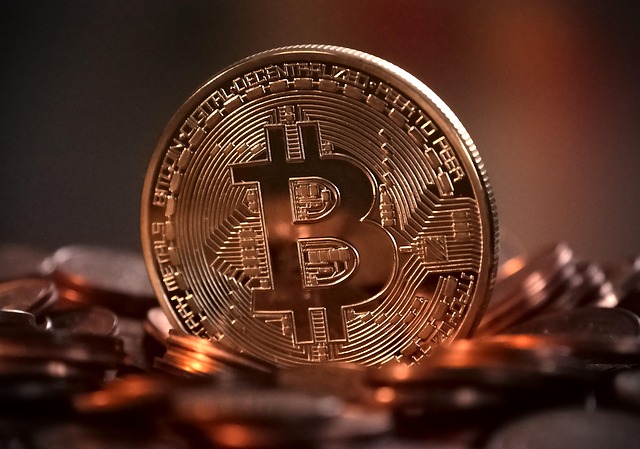Analysts brace for Bitcoin slide on gloomy US manufacturing data
Bitcoin’s spot price could take a hit after the US Federal Reserve reported some of the worst manufacturing data in recent history, according to several cryptocurrency analysts.On April 17, the Philadelphia Federal Reserve Manufacturing Index — a monthly survey of 250 US-based manufacturers — reported the sharpest declines in overall business activity since 2020. The data puts Bitcoin (BTC) “under short term pressure,” researchers at Bitunix, a crypto exchange, said in a post on the X platform. They added that Bitcoin could still see a “strong comeback” if its price holds above $83,000 per coin. As of April 18, Bitcoin has been trading at approximately $84,000 per coin, according to data from Google Finance. The Federal Reserve’s bearish report comes as factories brace for the impact of US President Donald Trump’s plans to impose sweeping tariffs on US imports, potentially raising production costs for manufacturers. “[I]ndicators for general activity, new orders, and shipments all fell and turned negative… suggest[ing] subdued expectations for growth over the next six months,” the report said. Source: Felix JauvinRelated: Trade tensions to speed institutional crypto adoption — ExecsBad omen for crypto?Analysts said the combination of rising prices and slowing production could deal a blow to financial markets, including cryptocurrencies. Rising prices limit central banks’ ability to support markets in a downturn. “Economic activity is falling off a cliff and any activity that remains, the prices are going up,” Felix Jauvin, a Blockworks macroeconomic analyst, said in a post on the X platform. It’s an “[a]bsolute worst scenario for policy makers here especially with no meaningful idea of how permanent tariffs will be,” he added.Six-month outlook for key manufacturing indicators. Source: Derek ThompsonHowever, Bitcoin has been more resilient to recent macroeconomic shocks than stocks or other cryptocurrencies, Binance said in an April research report. Since Trump announced his tariff plans on April 2, Bitcoin has traded roughly flat after initially declining but more than 10%, Google Finance data shows. Meanwhile, the S&P 500 — an index of US stocks — is still down by around 7%. “Even in the wake of recent tariff announcements, BTC has shown some signs of resilience, holding steady or rebounding on days when traditional risk assets faltered,” Binance said. Trump initially sought to impose double-digit levies on virtually all foreign goods but later paused planned tariffs on certain countries. He still wants to place high taxes on many Chinese imports, causing concerns among crypto executives who fear a trade war could harm blockchain networks. Magazine: Crypto ‘more taboo than OnlyFans,’ says Violetta Zironi, who sold song for 1 BTC
Oregon targets Coinbase after SEC drops its federal lawsuit
Oregon Attorney General Dan Rayfield is planning a lawsuit against crypto exchange Coinbase, alleging the company is selling unregistered securities to residents of the US state, after the United States Securities and Exchange Commission’s (SEC) dropped its federal case against the exchange. According to Coinbase’s chief legal officer, Paul Grewal, the lawsuit is an exact “copycat case” of SEC’s 2023 lawsuit against the exchange, which the federal agency agreed to drop in February. Grewal added:”In case you think I’m jumping to conclusions, the attorney general’s office made it clear to us that they are literally picking up where the Gary Gensler SEC left off — seriously. This is exactly the opposite of what Americans should be focused on right now.”The lawsuit signals that the crypto industry still faces regulatory hurdles and pushback at the state level, even after securing several legal victories on the federal level. Pushback from state regulators could fragment crypto regulations in the US and complicate cohesive national policy.Source: Paul GrewalRelated: Coinbase distances Base from highly criticized memecoin that dumped $15MSeveral US states drop lawsuits against Coinbase following SEC movesThe SEC reversed its stance on cryptocurrencies following the resignation of former chairman Gary Gensler in January.Gensler’s exit triggered a wave of dropped lawsuits, enforcement actions and investigations against crypto firms, including Coinbase, Uniswap, and Kraken.Several US states followed the SEC’s lead and also dropped their lawsuits against Coinbase in the first quarter of this year.Vermont, one of the 10 US states that filed litigation against the exchange, dropped its lawsuit on March 13.Vermont drops legal action against Coinbase. Source: State of VermontThe legal order specifically cited the SEC’s regulatory pivot and the establishment of a crypto task force by the agency as reasons for dropping the lawsuit.South Carolina dismissed its lawsuit against Coinbase two weeks after Vermont rescinded its litigation against the exchange giant.Kentucky’s Department of Financial Institutions became the third state-level regulator to dismiss its Coinbase lawsuit, ending the litigation on March 26.Despite the legal victory, Coinbase’s Grewal called on the federal government to end the state-by-state approach of crypto regulation and focus on passing clear market structure policies at the federal level.Magazine: SEC’s U-turn on crypto leaves key questions unanswered
Galaxy Research proposes new voting system to reduce Solana inflation
Crypto research firm Galaxy Research has made a proposal to adjust the voting system that decides the outcome of future Solana inflation following the failure to come to a consensus in a previous vote.On April 17, Galaxy introduced a Solana proposal called “Multiple Election Stake-Weight Aggregation” (MESA) to reduce the inflation rate of its native token, SOL (SOL). The researchers described the proposal as a “more market-based approach to agreeing on the rate of future SOL emissions.”Rather than using traditional yes/no voting for inflation rates, MESA allows validators to vote on multiple deflation rates and uses the weighted average as the outcome.“Instead of cycling through inflation reduction proposals until one passes, what if validators could allocate their votes to one or many changes, with the aggregate of ‘yes’ outcomes becoming the adopted emissions curve?” Galaxy explained. The motivation for the concept comes from a previous proposal (SIMD-228), which showed community agreement that SOL inflation should be reduced, but the binary voting system couldn’t find consensus on specific parameters. SIMD-228 proposed to change Solana’s inflation system from a fixed schedule to a dynamic, market-based model. The new proposal suggests maintaining the fixed, terminal inflation rate at 1.5% and sets forth multiple outcomes that create multiple ‘yes’ voting options with different deflation rates from which an average is aggregated if a quorum is reached. For example, if 5% vote for no change, remaining at 15% deflation, 50% vote for a 30% deflation rate, and 45% vote for 33%, the new deflation rate would be calculated as the aggregate at 30.6%. The target is to reach the terminal rate of 1.5% supply inflation. Predicted inflation curves under new voting proposal. Source: Galaxy Digital Solving problems with binary voting The benefits are that a more market-driven system allows validators to express preferences along a spectrum rather than with binary choices, while maintaining predictability with a fixed inflation curve.“Galaxy Research seeks to suggest a genuinely alternative process to achieving what we believe is the community’s broad goal, and not necessarily proscribe any particular inflation rate outcome,” the firm explained. Related: Solana upgrades will strengthen network but squeeze validators — VanEckUnder the current mechanism, supply inflation begins at 8% annually, decreasing by 15% per year until it reaches 1.5%. Solana’s current inflation rate is 4.6%, and 64.7% of the total supply, or 387 million SOL, is currently staked, according to Solana Compass. Galaxy affiliate Galaxy Strategic Opportunities provides staking and validation services for Solana.Magazine: Memecoin degeneracy is funding groundbreaking anti-aging research
A16z doubles down on LayerZero with $55M investment
Venture capital firm Andreessen Horowitz, or a16z, announced a $55 million investment in LayerZero, a Web3 company that runs a crosschain messaging protocol. The investment was disclosed in an April 17 X post by Ali Yahya, a general partner in the firm.A16z has made previous investments in LayerZero, including an initial investment in March 2022 and a subsequent investment during LayerZero’s Series B funding round in April 2023. The companies have not disclosed the funding round’s valuation.Source: Ali Yahja | alive.ethThe Canada-based LayerZero was valued at $3 billion during its Series B funding round, which saw participation from 33 investors. In addition to a16z, Circle Ventures, OKX Ventures, OpenSea Ventures, Sequoia Capital, and many others participated at the time. In January 2025, LayerZero reached a settlement with the FTX Estate over a long-running dispute stemming from allegations that it exploited the exchange’s liquidity crisis by “negotiating a fire-sale transaction,” according to the Estate. In June 2024, LayerZero launched its own token, LayerZero (ZRO).Related: ‘Big Sybil hunt’ and durable users helped LayerZero airdrop succeed, says CEOCrosschain protocols, chain-agnosticism gain tractionCrosschain messaging protocols allow programs to share information across ecosystems and can be a critical function for decentralized applications (DApps) or traders who want seamless swaps across blockchains.Some protocols competing in the same space as LayerZero include Wormhole, Stargate, Superbridge, Connext, and many others.Related: PayPal USD links with LayerZero for transfers between Ethereum and SolanaWormhole may be one of the largest competitors to LayerZero, having raised $225 million at a $2.5 billion valuation in November 2023. Like LayerZero, Wormhole hosted an airdrop for its token, Wormhole (W), although the airdrop attracted scammers and spoof tokens. Chainlink also has a crosschain interoperability protocol that allows for messaging between blockchains. More and more companies are realizing the value of being omnichain or at least chain-agnostic. Phantom, which at first was a Solana-centric wallet, now supports six major blockchains, including Bitcoin and Ethereum. Magic Eden, an NFT-infrastructure company, also started as Solana-centric but has launched marketplaces for multiple blockchains now.Magazine: X Hall of Flame: ChainLinkGod was in High School when he started the account!
How Meta’s antitrust case could dampen AI development
Meta, the parent company of Facebook, Instagram, WhatsApp and Messenger, is facing antitrust proceedings that could limit its ability to develop AI amid a field of competitors.First filed in 2021, the Federal Trade Commission (FTC) alleges that Meta’s strategy of absorbing firms — rather than competing with them — violates antitrust laws. If the court rules against Meta, it could be forced to spin out its various messenger services and social media sites into independent companies.The loss of its stable of social media companies could harm Facebook’s competitiveness not only in the social media industry but also in its ability to train and develop its proprietary Llama AI models with data from those sites.The trial could take anywhere from a couple of months to a year, but the outcome will have lasting consequences on Meta’s standing in the AI race.Meta’s antitrust case and its effect on AIThe FTC first opened its complaint against Meta in 2020 when the firm was still operating as Facebook. The agency’s amended complaint a year later alleges that Meta (then Facebook) used an illegal “buy-or-bury” scheme on more creative competitors after its “failed attempts to develop innovative mobile features for its network.” This resulted in a monopoly of the “friends and family” social media market.Meta founder and CEO Mark Zuckerberg had the chance to address these allegations on April 14, the first day of the official FTC v. Meta trial. He testified that only 20% of user content on Facebook and some 10% on Instagram was generated by users’ friends. The nature of social media has changed, Zuckerberg claimed.“People just kept on engaging with more and more stuff that wasn’t what their friends were doing,” he said — meaning that the nature of Meta’s social media holdings was sufficiently diverse.The FTC alleges that Meta identified potential threat competitors and bought them up. Source: FTCAt the time of the FTC’s initial complaint, Meta called the allegations “revisionist history,” a claim it repeated on April 13 when it stated the agency was “ignoring reality.” The company has argued that the purchases of Instagram and WhatsApp have benefited users and that competition has appeared in the form of YouTube and TikTok. If the District of Columbia Circuit Court rules against Meta, the global social media giant will be forced to unwind these services into independent firms. Jasmine Enberg, vice president and principal analyst at eMarketer, told the Los Angeles Times that such a ruling could cost Meta its competitive edge in the social media market. “Instagram really is its biggest growth driver, in the sense that it has been picking up the slack for Facebook for a long time, especially on the user front when it comes to young people,” said Enberg. “Facebook hasn’t been where the cool college kids hang out for a long time.”Such a ruling would also affect the pool of data from which Meta can draw to train its AI models. In July 2024, Meta halted the rollout of AI models in the European Union, citing “regulatory uncertainty.” The pause came after privacy advocacy group None of Your Business filed complaints in 11 European countries against Meta’s use of public data from its platforms to train its AI models. The Irish Data Protection Commission subsequently ordered a pause on the practice until it could conduct a review. Related: Meta’s Llama 4 puts US back in lead to ‘win the AI race’ — David SacksOn April 14, Meta got the go-ahead to use public data — i.e., posts and comments from adult users across all of its platforms — to train the model. If these firms dissolved into separate companies, with their own organizational structures and data protection policies and practices, Meta would be cut off from an ocean of data and human communication with which its AI could be improved. Andrew Rossow, a cyberspace attorney with Minc Law and CEO of AR Media Consulting, told Cointelegraph that in such an event, “companies would most likely control their own user data, and Meta would be restricted from using it unless new data-sharing agreements were negotiated, which would be subject to regulatory scrutiny and user/consumer privacy laws.”However, Rossow noted that it wouldn’t be a total loss for Meta. Zuckerberg’s firm would retain the wealth of data from Facebook and Messenger. It could continue to use “opt-in” data from consumers who allow their posts to be used for AI training, and it could also employ synthetic data sets as well as third-party and open data.Meta, the AI race and data protectionsThe race to unseat OpenAI and its ChatGPT model from AI dominance has grown more competitive in the last year as DeepSeek joined the fray and Meta launched the fourth iteration of its open-source Llama model. In addition to training new models, major AI development firms are investing billions in new data centers to accommodate new iterations. In January 2025, Meta announced the construction of a 2-gigawatt data center with more than 1.3 million Nvidia AI graphics processing units. Zuckerberg wrote in a post on Threads, “This will be a defining year for AI. In 2025, I expect Meta AI will be the leading assistant serving more than 1 billion people […] To power this, Meta is building a 2GW+ datacenter that is so large it would cover a significant part of Manhattan.”Illustration of the data map coverage. Source: Mark ZuckerbergHis announcement followed the $500-billion Stargate project, which would see massive investment in AI development led by OpenAI and SoftBank, with Microsoft and Oracle as equity partners. Related: Trump announces $500B AI infrastructure venture ‘Stargate’Amid this competition, AI firms are looking for broader and more varied sources of data to train their AI models — and have turned to dubious practices in order to get the data they need. In order to stay competitive with OpenAI when developing its Llama 3 model, Meta harvested thousands of pirated books from the site LibGen. According to court documents in a case pending against Meta, Llama developers harvested data from pirated books because licensing them from sources like Scribd seemed “unreasonably expensive.” Time was another perceived motivator for using pirated works. “They take like 4+ weeks to deliver data,” one engineer wrote about services through which they could purchase book licenses.The practice is not limited to Meta. OpenAI has also been accused of mining data from pirated work hosted on LibGen. Rossow suggested that, “to ensure lasting impact — beyond short-term profit,” Meta would do well to “prioritize investment in advanced data collection, rigorous auditing and the implementation of privacy-preserving and encryption-based technologies.”By focusing on transparency and responsible practices, “Meta can continue to genuinely advance AI capabilities, rebuild and nurture long-term user trust, and adapt to evolving legal and ethical standards, regardless of changes to its platform portfolio.”What a ruling for the FTC would meanLitigation is now hitting tech firms from all sides as they face allegations of privacy violations, copyright law infringement and stifling competition. Major cases like those facing Google, Amazon and Meta that have yet to play out will decide how and whether these firms can proceed as they have, defining the guardrails for AI development as well. Rossow said that the current antitrust case against Meta could decide how courts interpret antitrust law for tech firms, spanning tech mergers, data usage and market competition. It would also signal that courts are “willing to break up tech conglomerates” when issues of smothering competition are involved, while at the same time, “taking current precedent a step further in harmonizing it with the laws of cyberspace.”Magazine: Memecoin degeneracy is funding groundbreaking anti-aging research
4 things that could turn crypto prices around in Q2 after the ‘best worst quarter’
Despite recent major developments in the crypto industry, the market has just posted its weakest Q1 performance in years — but a crypto analyst is pointing to several catalysts that could make Q2 more promising.“Frustrating. That’s the best word to describe the past quarter,” Bitwise chief investment officer Matt Hougan said in a recent market report, calling Q1 the “best worst quarter in crypto’s history.”Bitcoin and Ether took an unusual hit in Q1Bitcoin (BTC) and Ether (ETH), the two largest cryptocurrencies by market capitalization, saw price declines of 11.82% and 45.41%, respectively, over Q1 2025 — a quarter that has historically seen strong results for both assets. Since 2013, Q1 has been Bitcoin’s second-strongest quarter on average (51.2%) and historically the best for Ether (77.4%), according to CoinGlass data.Historically, Q1 2025 is the second-best performing quarter for Bitcoin on average, but it’s the best for Ether. Source: CoinGlassHougan pointed to a few key catalysts that could help crypto deliver more upside to Q2. He noted the rise in global money supply, which “after years of tightening, central banks across the globe are signaling a shift toward monetary easing and M2 expansion.”“Historically, these conditions have been favorable for risk assets, particularly for digital assets,” Hougan said. Echoing a similar sentiment, Pav Hundal, the lead analyst at Australian crypto exchange Swyftx, told Cointelegraph in February that “in normal times, global loosening measures are a pretty reliable lead indicator for crypto.”More recently, on April 14, analyst Colin Talks Crypto said, “Global M2 has remained at an ATH for 3 days in a row.” Bitcoin moves in the direction of global M2 83% of the time, economist Lyn Alden wrote in a September research report.BTC/USD vs global M2 supply. Source: Colin Talks CryptoHougan also said the “clean sweep of pro-regulations” in the US may be another bullish factor for the crypto market. “This is the long tail of regulatory clarity that no one is talking about, and it’s just getting started,” Hougan said.The rise in stablecoin assets under management may also be a positive indicator that more upside is to come this year in the crypto market. Hougan said during the first quarter, stablecoin assets under management surged to “an all-time high of over $218 million.”“Growing stablecoin adoption will benefit adjacent sectors, including DeFi and other crypto applications,” he said. Related: Bitcoin rally to $86K shows investor confidence, but it’s too early to confirm a trend reversalThe firm also said that the “geopolitical chaos” seen in the global economy during Q1 2025, mainly after US President Donald Trump’s inauguration through his tariffs, “are pushing global investors to reassess their portfolios.”It comes only days after Hougan recently reiterated his prediction that Bitcoin may surge approximately 138% from its current price of $84,080 by the end of the year.“In December, Bitwise predicted that Bitcoin would end the year at $200,000. I still think that’s in play,” Hougan said.Meanwhile, crypto exchange Coinbase recently said, “When the sentiment finally resets, it’s likely to happen rather quickly, and we remain constructive for the second half of 2025.”Magazine: Riskiest, most ‘addictive’ crypto game of 2025, PIXEL goes multi-game: Web3 GamerThis article does not contain investment advice or recommendations. Every investment and trading move involves risk, and readers should conduct their own research when making a decision.
Panama's capital to accept crypto for taxes, municipal fees
Panama’s capital city will accept cryptocurrency payments for taxes and municipal fees, including bus tickets and permits, Panama City mayor Mayer Mizrachi announced on April 15, joining a growing list of jurisdictions globally that have voted to accept such payments.Panama City will begin accepting Bitcoin (BTC), Ether (ETH), Circle’s USDC (USDC), and Tether’s USDt (USDT) stablecoin for payment once the crypto-to-fiat payment rails are established, Mizrachi posted on the X platform. Mizrachi said previous administrations attempted to push through similar legislation but failed to overcome stipulations requiring the local government to accept funds denominated in US dollars.In a translated statement, the Panama City mayor said that the local government partnered with a bank that will immediately convert any digital assets received into US dollars, allowing the municipality to accept crypto without introducing new legislation.Panama City joins a growing list of global jurisdictions on the municipal and state level accepting cryptocurrency payments for taxes, exploring Bitcoin strategic reserves to protect public treasuries from inflation and passing pro-crypto policies to attract investment.Source: Mayer MizrachiRelated: New York bill proposes legalizing Bitcoin, crypto for state paymentsMunicipalities and states embrace digital assetsSeveral municipalities and territories around the globe already accept crypto for tax payments or are exploring various implementations of blockchain technology for government spending.The US state of Colorado started accepting crypto payments for taxes in September 2022. Much like Panama City said it will do, Colorado immediately converts the crypto to fiat.In December 2023, the city of Lugano, Switzerland, announced taxes and city fees could be paid in Bitcoin, which was one of the developments that earned it the reputation of being a globally recognized Bitcoin city.The city council of Vancouver, Canada, passed a motion to become “Bitcoin-friendly city” in December 2024. As part of that motion, the Vancouver local government will explore integrating BTC into the financial system, including tax payments.North Carolina lawmaker Neal Jackson introduced legislation titled “The North Carolina Digital Asset Freedom Act” on April 10. If passed, the bill will recognize cryptocurrencies as an official form of payment that can be used to pay taxes.Magazine: Crypto City: The ultimate guide to Miami
SEC's next roundtable to discuss crypto custody with insiders
The US Securities and Exchange Commission (SEC) announced industry insiders from Kraken, Exodus, Anchorage Digital, and others would be participating in its crypto task force’s roundtable discussion on custody.In an April 16 notice, the SEC said commissioners Hester Peirce and Caroline Crenshaw, acting chair Mark Uyeda and crypto task force Chief of Staff Richard Gabbert will sit down with Mark Greenberg, crypto exchange Kraken’s vice president of consumer business and product, Anchorage Digital Bank’s Chief Risk Officer Rachel Anderika and Exodus Chief Legal Officer Veronica McGregor. Other representatives will include those from WisdomTree, Fidelity Digital Asset Services, and Fireblocks.“It is important for the SEC to grapple with custody issues, which are some of the most challenging as we seek to integrate crypto assets into our regulatory structure,” said Peirce, who heads the SEC task force.Notably, Uyeda was listed as acting chair of the commission at the April 25 event, despite the US Senate confirming that Paul Atkins would head the regulatory body on April 9. It’s unclear when Atkins will be sworn in as SEC chair, but at the time of publication, the regulator had not listed him as a current commissioner.Related: US gov’t actions give clue about upcoming crypto regulationAmong the topics listed on the roundtable’s agenda are discussions on broker-dealers and custody at investment firms. Demand for digital asset custody in the US has grown in the last few years, especially following the approval of crypto exchange-traded funds in January 2024. The trend has also drawn in traditional financial institutions, including long-standing firms such as BNY Mellon.Since the inauguration of US President Donald Trump in January and the departure of former SEC Chair Gary Gensler, the agency has seemingly moved in a direction more favorable to the crypto industry by abandoning certain enforcement actions and dismissing efforts in court to expand or maintain its authority over digital assets.The first of the crypto task force’s roundtable events on March 21 dealt with the status of many tokens as securities. Another on April 11 included discussions on “tailoring regulation for crypto trading.”Is DOGE infiltrating the SEC?The roundtable discussions come as reports suggested the “government efficiency” team launched by Tesla CEO and presidential adviser Elon Musk had been given access to the SEC’s systems and data. Acting chair Uyeda has reportedly pushed back on requests by the Department of Government Efficiency, or DOGE – which is not an official US government department — to access SEC data.DOGE faces criticism and some lawsuits over attempts to fire staff at US government agencies. It’s unclear whether Musk intends to “streamline” the SEC in the same way the group went after the US Agency for International Development and the Consumer Financial Protection Bureau.Magazine: XRP win leaves Ripple and industry with no crypto legal precedent set
Bitdeer turns to self-mining Bitcoin, US operations amid tariff tumult — Report
Bitcoin miner Bitdeer is reportedly expanding its self-mining operations and investing in United States-based production as looming trade wars rock global supply chains and cryptocurrency markets. Bitdeer has begun prioritizing mining Bitcoin (BTC) itself in response to cooling demand for its mining hardware from other miners, Bloomberg reported on April 15.“Our plan going forward is to prioritize our own self-mining,” Jeff LaBerge, Bitdeer’s head of capital markets and strategic initiatives, reportedly said. Additionally, Bitdeer plans to scale US hardware manufacturing in the second half of the year as US President Donald Trump touts plans to penalize foreign imports and promote domestic manufacturing, Bloomberg said.“This is something we’ve been planning for a long time,” LaBerge said about the manufacturing plans. “We want to bring jobs and manufacturing back to America.”In April, Trump tipped plans for sweeping tariffs on US imports. The Bitcoin network is especially vulnerable to trade barriers since mining hardware involves complex global supply chains.Bitcoin’s hash price is near all-time lows. Source: Hashrate IndexRelated: Tariffs, capital controls could fragment blockchain networks — ExecsSector-wide strugglesBitcoin miners — including Bitdeer — have struggled in 2025 as volatile crypto markets worsen the impact of the Bitcoin network’s April 2024 halving. In February, Bitdeer’s stock dropped by roughly 28% after the Bitcoin miner announced lower-than-expected earnings and revenues for the fourth quarter of 2024. Bitdeer’s “lower performance compared to Q4 2023 was primarily driven by the impact of the April 2024 halving,” among other factors, Harris Bassett, Bitdeer’s chief strategy officer, said during Bitdeer’s earnings call. Every four years, the amount of BTC mined per “block” — a bundle of transaction data stored on the blockchain — is cut in half. The April 2024 halving reduced mining rewards from 6.25 BTC to 3.125 BTC per block.Bitcoin price versus stocks. Source: 21SharesSince then, mining revenues and gross profits have dropped by an average of 46% and 57%, respectively, JPMorgan said previously in a research note shared with Cointelegraph. Meanwhile, Bitcoin’s hash price — a measure of miner profitability — has sunk to nearly all-time lows, according to data from the Hashrate Index. In 2024, Bitdeer tried to offset declining mining revenues by selling its own energy-efficient Bitcoin mining rigs. However, sales growth has been limited and did not offset weakness in other business lines in Q4. The market turbulence comes as Bitcoin Trump family-backed crypto mining operation American Bitcoin reportedly is considering an initial public offering. Magazine: Memecoin degeneracy is funding groundbreaking anti-aging research
Only 11% of El Salvador’s registered Bitcoin firms operational
Only 20 of the 181 Bitcoin service providers registered with El Salvador’s central bank are operational, with the rest failing to meet the country’s requirements under its Bitcoin Law. Local media outlet El Mundo cited data from the Central Reserve Bank of El Salvador, showing that 11% of the service providers are operational. According to the central bank’s database, the rest of the providers are classified as non-operational. The data showed that at least 22 non-operational providers have failed to meet most of the country’s Bitcoin Law requirements, which mandate that providers implement stringent supervision of their financial systems. Most of El Salvador’s Bitcoin service providers are non-operationalEl Salvador’s Bitcoin Law requires providers to maintain an Anti-Money Laundering (AML) program, keep records that accurately reflect the company’s assets, liabilities and equity and have a tailored cybersecurity program depending on the nature of its services. The data showed that 89% of the registered providers have failed to meet some of these obligations to be classified as operational. Still, a few firms have satisfied the legal criteria, including the state-backed Chivo Wallet and companies including Crypto Trading & Investment and Fintech Américas.Related: Cathie Wood to kick off El Salvador’s AI public education programEl Salvador’s Bitcoin experimentIn 2021, El Salvador became the first country to accept Bitcoin as legal tender along with the US dollar. This move made Bitcoin integral to El Salvador President Nayib Bukele’s economic strategy. However, the Central American country recently signed a deal with the International Monetary Fund (IMF) on a $1.4 billion loan in exchange for rolling back some of its Bitcoin-related efforts. Under the agreement, taxes will be paid in US dollars and public institutions will limit their use of Bitcoin.On March 3, the IMF asked the country to stop its public sector Bitcoin buys. Still, Bukele said the government will continue to purchase Bitcoin, seemingly contradicting its IMF deal.The IMF deal prompted speculation about whether the country would rescind Bitcoin’s status as legal tender. John Dennehy, an El Salvador-based Bitcoin activist and educator, said in an X Space with Cointelegraph that a rollback law changing Bitcoin’s legal status is set to take effect on April 30.Magazine: Memecoin degeneracy is funding groundbreaking anti-aging research










